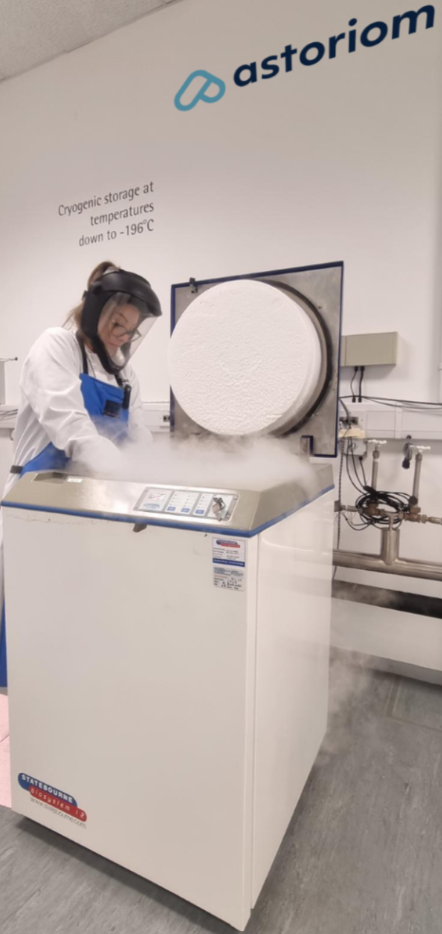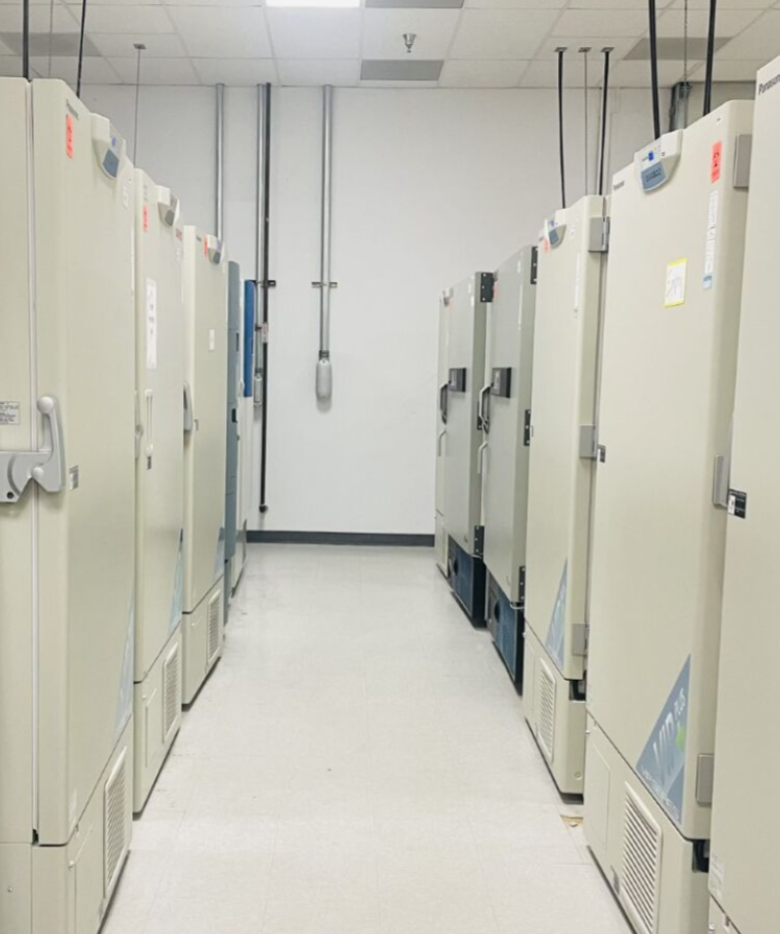Biorepository – a blog by Astoriom
Tags
Thanks to Astoriom for this insight and practical advice about biorepository, one of the building blocks for health innovation, where the Human Tissue Authority insists on the highest safety standards.
Human tissue storage compliance: why HTA-licensed biorepositories like Astoriom are essential for research integrity
When it comes to storing, handling, and managing human tissue samples, you should never assume compliance is a given. Failure to comply with strict legal, ethical, and quality standards required can put your research, diagnostics, or clinical development work at risk.
In the UK, the Human Tissue Authority (HTA) sets out the legal framework for human tissue storage and biorepository management. Our HTA licence demonstrates that our biorepository operates under robust systems to handle human tissue lawfully and safely. This protects donors, maintains public trust, and safeguards your research.
Astoriom’s HTA-licensed biorepositories
At Astoriom, our UK facilities hold valid HTA licences and are inspected regularly. This means our partners know that every biospecimen is stored and managed with full compliance with the Human Tissue Act and under regular inspection. In doing so, we protect the integrity of your samples and your reputation.

Why you should never assume compliance
Without evidence of the highest quality compliance licensing, your work could be compromised by poor storage practices, mishandling, or even breaches of UK law.
International quality and regulatory frameworks such as ISO 9001, cGMP, ICH guidelines (for pharmaceutical quality and stability testing), CAP accreditation for laboratory excellence and other country-specific regulatory compliance requirements are equally important to ensure the highest quality sample and data storage and further underline why robust sample management compliance oversight matters. Facilities that meet these certification standards ensure that biospecimens and associated data are handled under validated conditions, with documented processes for traceability, temperature control, and quality monitoring.
At Astoriom, our HTA licence is backed by aligned processes and quality systems that meet or exceed wider best practice frameworks. This allows research institutions, diagnostic labs, biopharma partners and other organisations, to trust us to keep your samples stable, secure, and legally stored for as long as needed.
Best practice for storage, stability and management of human tissue samples
So what does good practice look like in reality? Here are key areas every biorepository should get right:
1. Controlled, monitored storage conditions
Human tissue samples often require precise temperature and humidity control. We operate validated storage environments from +60°C ambient to -196°C ultra-low temperatures, with 24/7 monitoring, alarm systems, and backup power.
2. Proven stability programmes
Sample stability isn’t static; conditions must be routinely checked and documented. Astoriom’s stability programmes follow ICH guidelines where relevant, ensuring you have defensible data on how your samples are maintained over time.
3. Full chain-of-custody and traceability
Knowing exactly where each sample is, and who has handled it, is critical. Our systems track every sample’s journey from receipt through storage, retrieval, and onward transfer or disposal, ensuring compliance with HTA licensing and other standards.
4. Ethical handling and donor respect
HTA standards exist to protect donors and the wider public. We train our sample experts and technicians thoroughly to understand legal and ethical requirements, ensuring your samples are handled with respect and care at every step.
5. Secure facilities and business continuity
Our UK sites are designed with robust physical security and contingency plans, including backup generators, duplicate freezers, and emergency response protocols, to protect your samples no matter what.
6. Transparent, auditable quality management
Astoriom’s documented SOPs, inspections, and external audits give you the assurance that you can demonstrate compliance at any point. We welcome client audits to provide added reassurance.

A practical guide: 10 questions to ask before choosing a biorepository partner
Regulatory oversight shouldn’t be assumed; it must be verified. Before entrusting samples to any provider, ask these questions:
Are you fully licensed by the HTA for human tissue storage?
What other certifications do you hold (for example ISO, ICH, etc)?
Can you share your most recent inspection outcomes?
How are storage conditions monitored and validated?
What happens if there’s a temperature deviation or power failure?
How is chain-of-custody maintained and recorded?
How do you ensure sample stability over time?
What security and backup measures protect the samples?
Can I audit your facility or review your processes?
What happens to the samples if I withdraw or transfer them?
Displaying an HTA licence, as you’ll see at Astoriom’s sites, gives you confidence that your samples are safeguarded by strong systems and clear accountability. Combined with rigorous quality standards, best practice storage, and a proactive compliance culture, this protects your research and your reputation.
By Philip Bradley, General Manager, Astoriom
